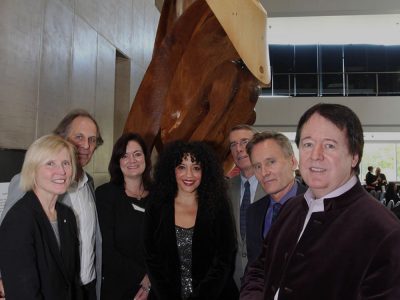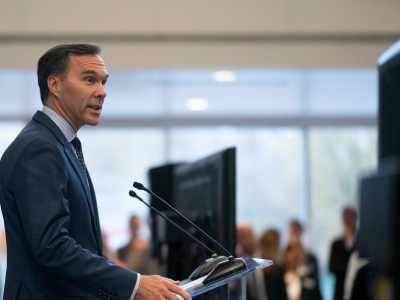By Joseph Mathieu
Photos by Shmoofypoof Creative
“It is hard, if not impossible, to explain something that is essentially irrational, delusional and absurd,” Deborah E. Lipstadt wrote in her 2019 book Antisemitism Here and Now. “That is the nature of all conspiracy theories, of which anti-Semitism is just one.”
Lipstadt tackled the subject head on at the Holocaust Education Month Launch event on Nov. 10, 2019 hosted by the Centre for Holocaust Education and Scholarship (CHES).
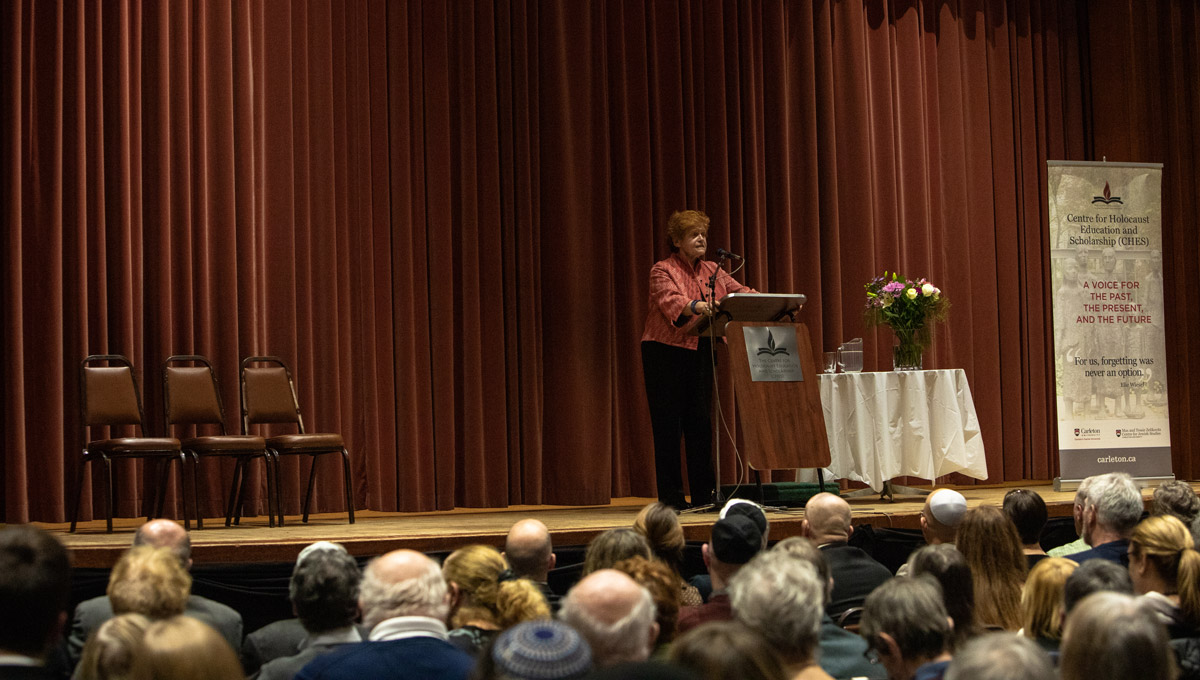
Deborah Lipstadt
Organized in co-operation with the Azrieli Foundation, Kehillat Beth Israel Congregation, and the Zelikovitz Centre for Jewish Studies at Carleton University, the event drew 600 people to the Kehillat Beth Israel synagogue’s social hall. Among the guests were Prof. Irwin Cotler from the Raoul Wallenberg Centre for Human Rights and many diplomats and officials from the embassies of Israel, Austria, Slovakia and Germany.
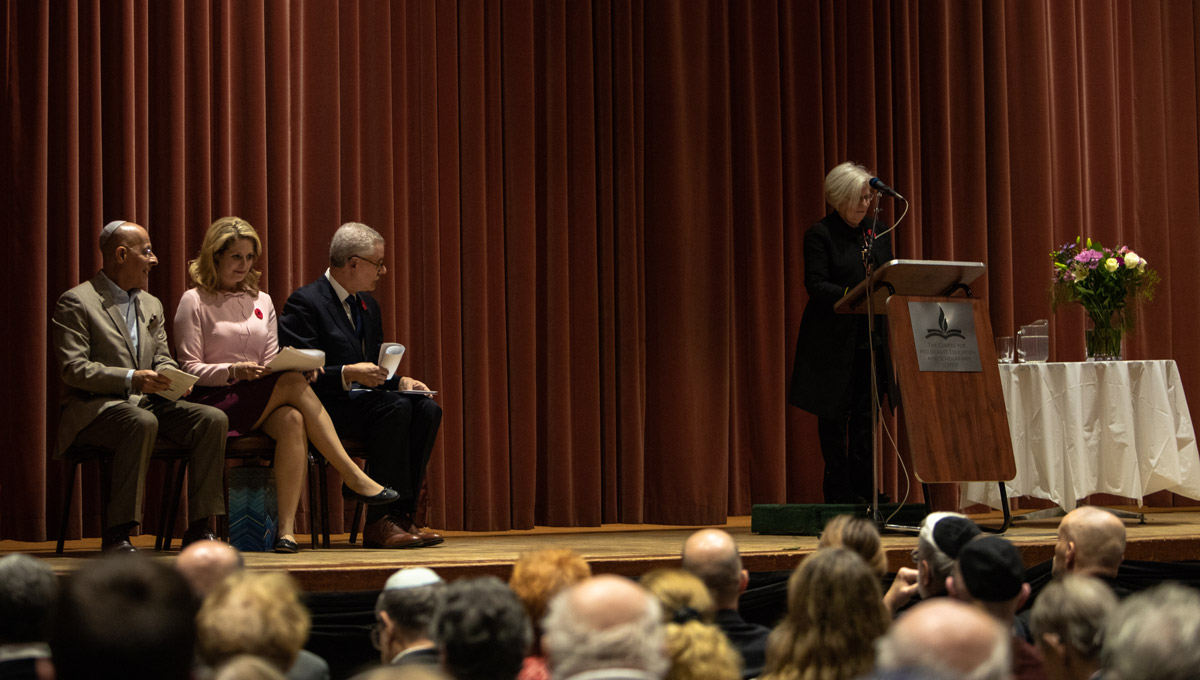
Getting to the Root of Holocaust Denial
Carleton President Benoit-Antoine Bacon introduced Lipstadt as the ideal lecturer for the event: a world-renowned Holocaust historian and the author of six books and numerous articles who has taught about the Holocaust for more than 40 years. She is the Dorot Professor of Modern Jewish History and Holocaust Studies at Atlanta, Georgia’s Emory University.
Modern Jewish studies, said Lipstadt, identify the roots of anti-Semitism in a distorted story from the New Testament. Lipstadt explained how Jesus’s Crucifixion was manipulated in the Middle Ages by Christian religious leaders as a means of differentiating Judaism from Christianity.
In their misrepresentation, blame didn’t fall on the Romans for killing Jesus. They refused, but were convinced by the Jewish money changers whom Jesus had chased from the temple.
“This story became the template for anti-Semitism,” said Lipstadt. “What do you have in that story? The Jew’s obsession with money, what I would call cunning or smarts, and his power—the ability to get Rome to change its mind.”
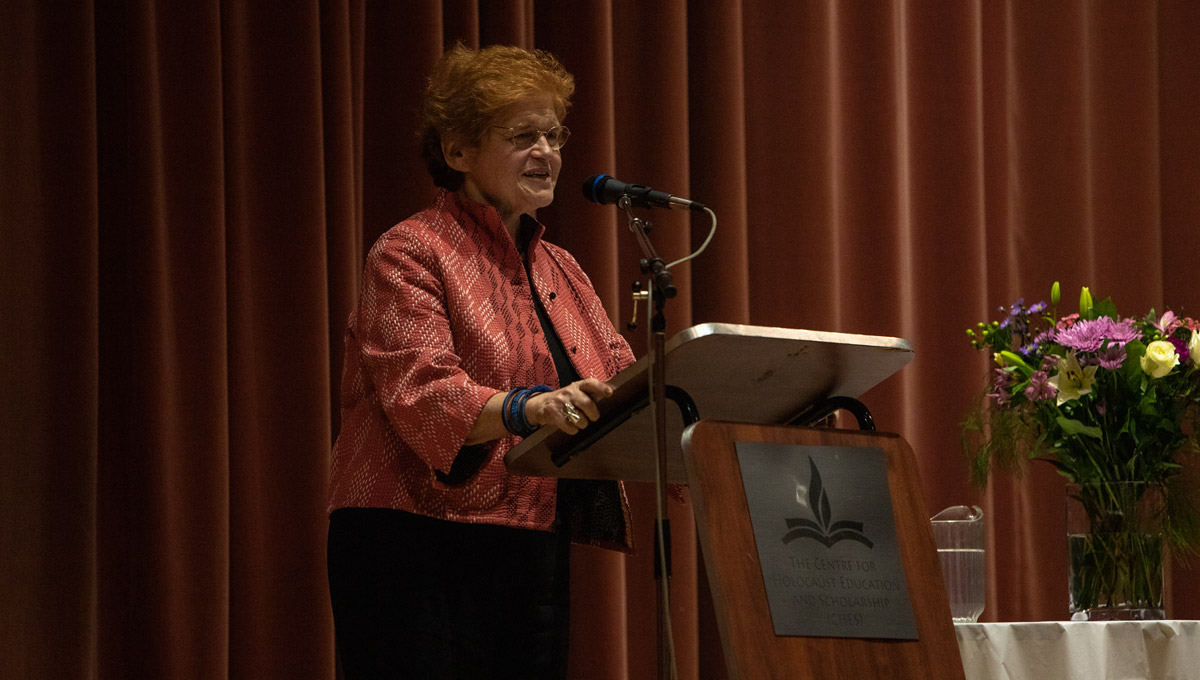
The prejudiced template migrated outside of religious circles into the writings of certain philosophers and eventually into the eugenics movement. The message remained similar: the Jewish people, though small in number, were to be feared.
Holocaust denial, a fringe belief that millions of Jews were not actually killed or oppressed during the Second World War, is another version of the same mould.
“The logical question you would ask is: ‘Well, why did the Jews make up this story?'” said Lipstadt. “The answer often given by deniers is Israel and reparations, which is a fancy word for money.”
Lipstadt has battled deniers before. She is well known as the target of a libel suit brought by David Irving over his portrayal in her 1993 book Denying the Holocaust. Despite a drawn-out trial, she won the case in 2000 and wrote about the events in History on Trial: My Day in Court with a Holocaust Denier.
Since 2015, CHES has developed educational programs to promote understanding of the history and legacy of the Holocaust. A rise in anti-Semitic violence around the world in the 21st century urged CHES to adopt anti-Semitism as this year’s theme for Holocaust Education Month, said director Mina Cohn.
The event included the 2019 Arie van Mansum Award for Excellence in Holocaust Education, given to Prof. Jan Grabowski from the University of Ottawa’s Department of History. Awarded each year to an educator who has done exemplary work in Holocaust education, the award commemorates the Dutch-born Arie van Mansum, who saved the lives of many Jews during the Second World War.
Among several upcoming CHES Holocaust Education Month events are a workshop Nov. 14 to provide teachers and educators with the tools to teach the legacy of the Holocaust, a workshop on Nov. 15 to help Ottawa police and other law enforcement agencies recognize racism and anti-Semitism, and a symposium for descendants of Holocaust survivors Nov. 17.
The launch event took place on the 81st anniversary of Kristallnacht, when Jewish stores, homes and places of worship in Germany and Austria were attacked and vandalized. The arson, destruction and violence during Nov. 9 and 10, 1938 were the culmination of Nazi propaganda and persecution that became the first days of the Holocaust.
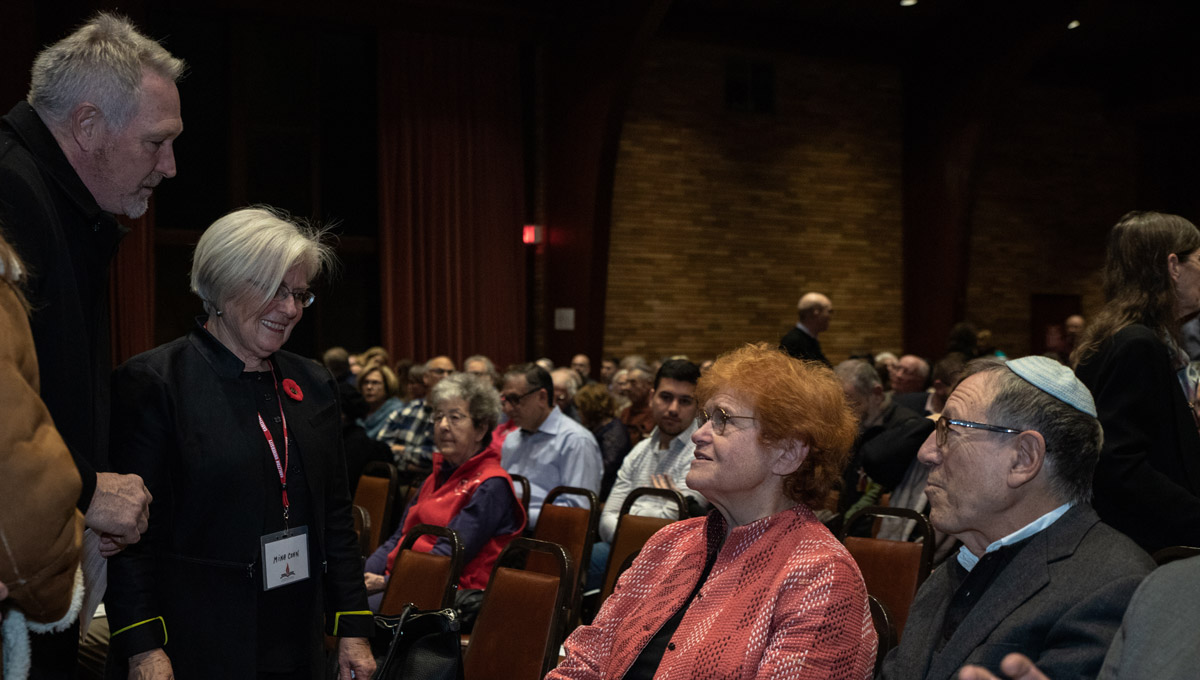
Anti-Semitism Can Take Many Shapes
Not all anti-Semites are violent. While the word brings up Tiki torch-carrying white supremacists marching in Charlottesville, Virginia in August 2017, anti-Semitism can take many shapes, said Lipstadt.
She detailed “dinner party” anti-Semites, who disapprove of physical violence but pass on prejudiced views of Jews in intimate settings, and “clueless” anti-Semites, who unconsciously promote hateful things in well-meaning compliments.
“When you boast: ‘Some of my best friends are Jews,’ you’re saying one of a couple things,” said Lipstadt. “Either: ‘Look at me, I’m so open-minded that I’m friends with them,’ or, ‘I’m friends with the good ones, not the other ones.'”
There’s also the anti-Semitic enabler – usually a political figure or celebrity who might not overtly use anti-Semitic speech but who won’t decry it when they hear it.
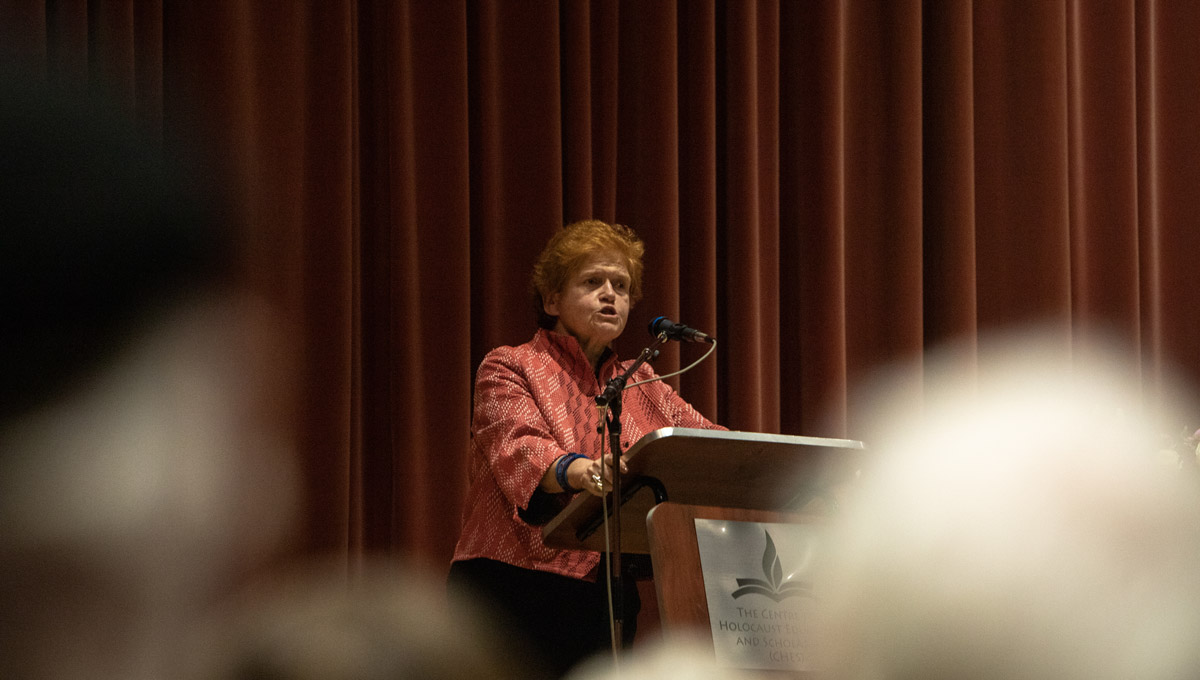
Lipstadt explained how U.S. President Donald Trump and the British Labour Party Leader Jeremy Corbyn were enablers of anti-Semitism on the political right and left. It’s not enough to ask if they are racists, this question misses the point, she said.
“The right questions to ask are: Has he facilitated and amplified expressions of anti-Semitism?” she wrote in her book. “Has he been consistently reluctant to acknowledge expressions of anti-Semitism unless they come from white supremacists and neo-Nazis?”
Racists and anti-Semites are two sides of the same coin, she said. They believe people of colour and minority religious groups bring the rest of society down. But anti-Semites take their prejudice further with an overtone of conspiracy.
Lipstadt said she was unsure that anti-Semitism could entirely be stopped, but she was optimistic it could be diminished.
“We have to become the unwelcome guest at the dinner party,” she said. “If someone says something anti-Semitic, racist or prejudiced, you can’t be quiet.”
The goal is not to change the person’s mind but to let others know, especially young people, that this kind of illogical hatred cannot stand.
“Anti-Semites will not hear you, but someone else at that table might.”
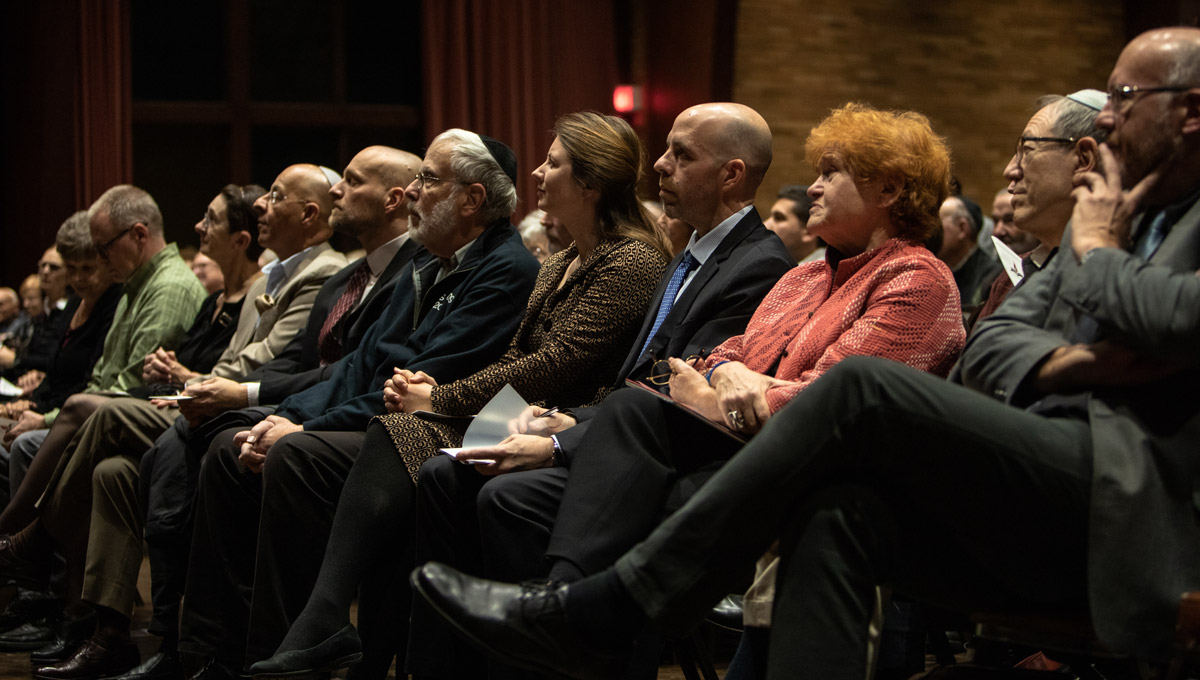
Thursday, November 14, 2019 in Faculty of Arts and Social Sciences
Share: Twitter, Facebook

